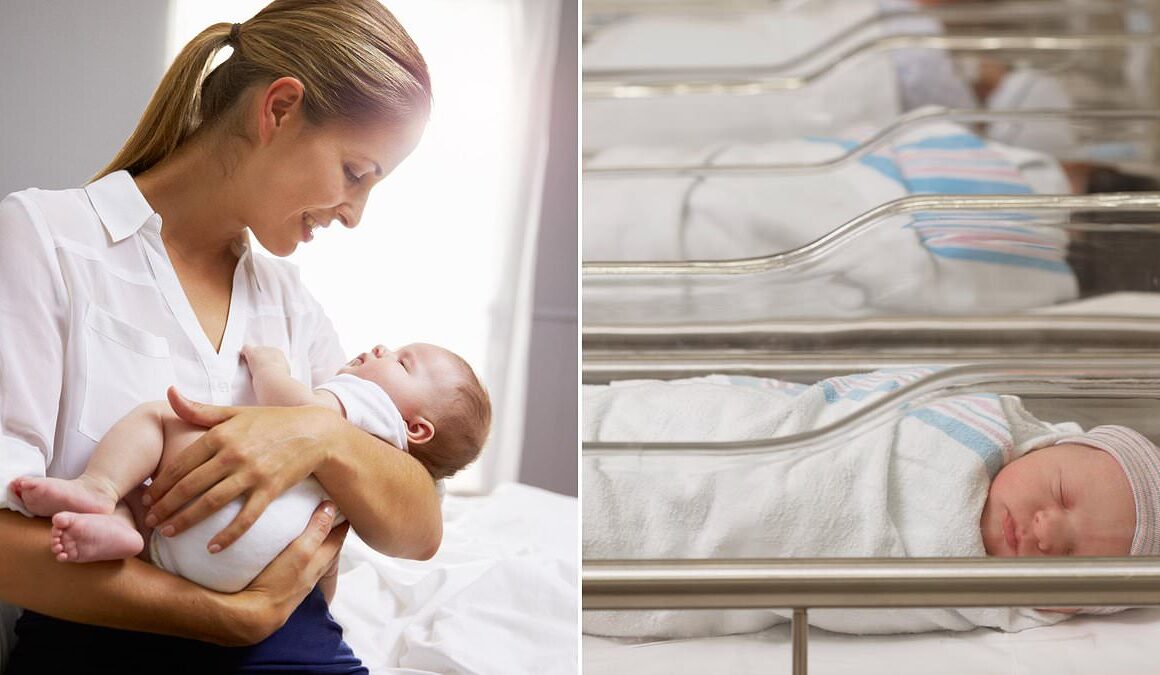Scotland faces a growing population crisis as the number of births and the fertility rate both plunged to new record lows.
Official figures show the number of live births fell to its lowest ever figure of 45,935 in 2023, which was down by two per cent on the previous year.
At the same time, the fertility rate – the average number of children a woman is expected to have – fell to a new low of 1.3, compared to 1.33 the previous year.
It is far short of the fertility rate of 2.1 needed for a population to be able to replace itself.
There were 63,445 deaths registered in Scotland last year, which was 1 per cent more than 2022, and the number of deaths have now been higher than births for nine consecutive years.

Scotland’s birth rate tumbled to its lowest level on record last year
Economists warned that the declining natural population will put pressure on public finances and is likely to lead to tax rises or spending cuts.
João Sousa, deputy director of the Fraser of Allander Institute, said: ‘In a context where low birth rates are here to stay, providing a decent standard of social protection and of living to those in retirement is likely to be linked with somewhat higher taxes and somewhat less spending in some areas.’
Figures in a new report by the National Records of Scotland show that the 45,935 live births registered in 2023 was the lowest annual total since records began in 1855.
The report said that births have been falling over the long term and hit a previous low in 2002 before increasing to a high of 60,041. Since then, the number has decreased most years.
Just over half of live births – 53 per cent – were to unmarried parents, while the most common age group for mothers giving birth has increased to 30-34.
The fertility rate was even lower than the national average of 1.30 in Scotland’s cities. Edinburgh had the lowest rate, at 0.98, followed by Glasgow, at 1.12.
The highest fertility rates were in the most deprived areas, at 1.42, while the lowest rate of 1.12 was in the least deprived areas.
Scottish Conservative finance spokesman Liz Smith MSP said: ‘These alarming figures point to a demographic timebomb in Scotland.

The plummeting birth rates have sparked fears of a ‘demographic time bomb’ in Scotland
‘We already have an ageing population, and declining birth and fertility rates raise questions over whether we will have a big enough working population to support their pension and healthcare needs in the years to come.
‘To offset this worrying trend, the SNP Government need to do more to attract working-age people to Scotland from elsewhere in the UK, but that’s not going to happen while taxes are higher here than south of the border.’
Equalities Minister Kaukab Stewart said: ‘Making sure every place in Scotland has the population it needs to thrive is key to ensuring the sustainability of our communities.
‘Lower birth rates are a trend across a number of higher income countries, and while deciding to have a child or not is obviously a matter for individuals, we are identifying and addressing barriers to people starting or expanding families through the delivery of Scotland’s Population Strategy.
‘Inward migration is also key and while immigration is a reserved policy matter, we hope to work collaboratively with the new UK Government to support people to move to Scotland.’
Phillipa Haxton, head of vital events statistics at the NRS, said: ‘The publication of these annual figures for 2023 gives us an opportunity to step back and look at the bigger picture.
‘We’re seeing the number of excess deaths falling after three years when they were higher due to the impact of the pandemic.
‘The number of births has fallen, and the total fertility rate is the lowest ever recorded reflecting the move towards smaller families.’







